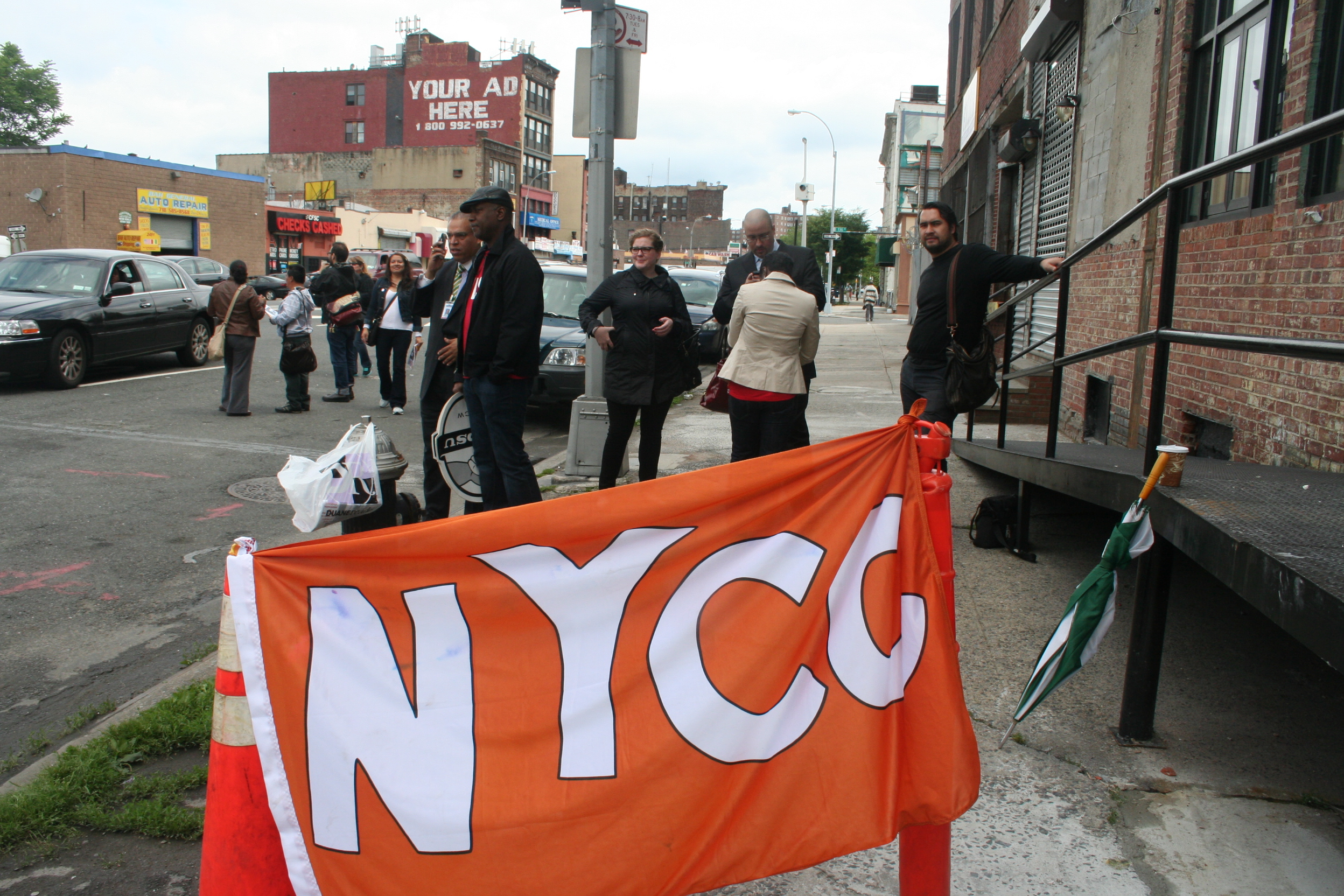
Employees walked out last winter when owner withheld pay
After months of picketing and negotiating, the workers at Sunny Day Car Wash finally have the back pay that was owed to them, along with something rarely found in the industry…a labor contract.
Union representatives and elected officials joined workers on June 14 to celebrate their victory in front of the car wash on 136th St. next to the Major Deegan Expressway while passing cars honked their support.
Victor Villatoro, 40, of the Retail, Wholesale and Department Store Union, recalled joining the workers during their protests last winter.
“They were out here in the cold and snow, but the workers kept going at it, ” he said. “Above all they were fighting for respect. There wasn’t any respect coming from the owners and the workers were abused for a long time.”
In November, workers walked out, complaining the owner, Frank Roman, had fired several of their colleagues who complained they had not been paid for weeks. Getting to the negotiating table took patience, according to Juan Campis, one of the workers.
“The other side was like ‘no, no, no.’ It was chaotic, In the owner’s point of view the contract was just a big money sign, but later on he just started listening”, Campis said in Spanish.
“You can’t have workers in the shop all mad or they’re not going to work for you,” he continued. “He realized if there’s a contract, they’ll work harder.”
The strike briefly lost momentum when some of the workers found other jobs, recalled Christopher Campis, 16. But now that they had made themselves heard, all of the workers, with or without legal status, have representation.
“Everyone should be equal inside there,” he said, motioning towards the car wash.
The new contract will give the workers job security that they didn’t have before, sick days, paid leave, vacation days, and something almost unheard of in the car wash industry—the right to a pay raise.
David Mertz of the non-profit Make the Road New York, which joined workers in the strike, said that with union representation and a grievance procedure, workers “don’t have to worry about getting fired, or worry about favoritism.”
The contract also entitles workers, most of whom are immigrants, to 28 days of unpaid leave. That would allow them to visit their home countries without worrying about finding out they’ve been fired when they return.
The workers, union representatives and officials stood in a semicircle on the same busy street corner where the workers picketed last winter. State Senator Gustavo Rivera said that Sunny Day’s owner is now an example other car wash owners should emulate.
“He actually sat down and had a conversation with the workers and reached an agreement and that’s something that I want everyone to know—that this is the example of the type of carwash that we need,” he said.
Rivera said he wants to see the precedent of a carwash owner allowing his workers to unionize become a trend, adding he would support owners who do. True to his word, he drove his car up to Sunny Day to have it washed after the speeches were finished.
Councilwoman Melissa Mark-Viverito said the workers’ successful fight to unionize “shows the power of grassroots organizing and workers not being afraid of speaking up for themselves. We can now promote this as a good business,” she said, adding that when owners “treat the workers well, the business is going to benefit from creating a better work environment”.
Juan Campis hoped that the new-won union status would encourage workers at other car washes to push for their own contracts, recalling that his co-workers, too, were hesitant to join the Sunny Day strike at first.
“After we won the contract, more people started coming,” he said. “At first they were like, ‘he’s the boss, he’s just going to fire you.’ But after, they were like ‘we probably can make a change.”

